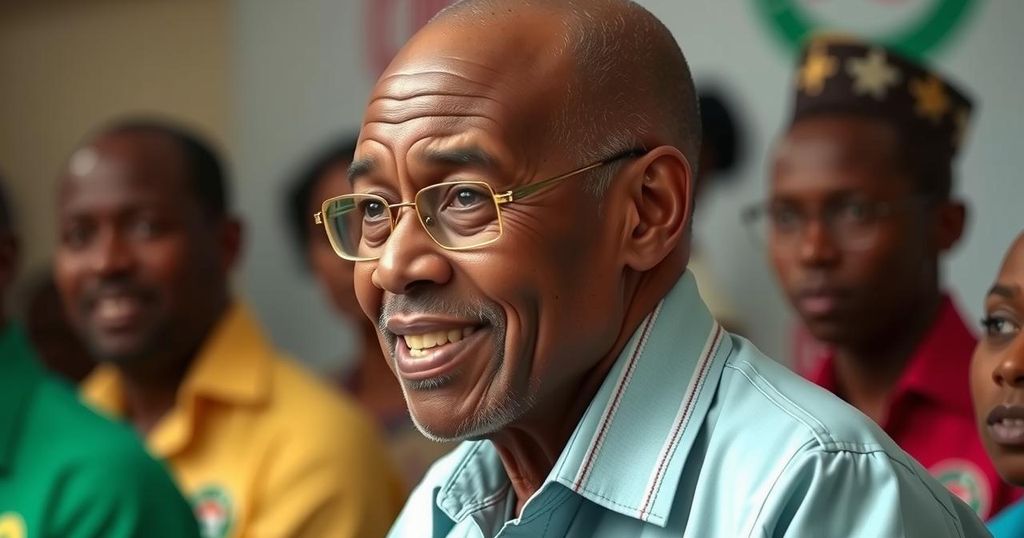Chad Holds First Parliamentary Elections in Over a Decade Amid Opposition Boycotts
Chad is conducting parliamentary, regional, and municipal elections for the first time in over ten years, amidst a climate of skepticism from opposition parties who are boycotting the process. These elections follow a transitional period initiated after the death of longtime leader Idriss Deby, with many critics doubting the electoral integrity due to previous governmental repression and civil unrest.
Chad is undergoing parliamentary, regional, and municipal elections for the first time in over a decade. This marks a significant step for the Central African nation toward establishing a democratic governance structure, following years of military rule under the late Idriss Deby and subsequently his son, Mahamat Idriss Deby. The elections were delayed due to financial constraints and the COVID-19 pandemic, but many opposition parties are expressing skepticism, with some choosing to boycott the polls altogether, branding the elections as a mere attempt to legitimize what they perceive as a political dynasty.
The Chadian government claims that the elections will end a three-year transitional period that began after Idriss Deby’s death in 2021. Nearly 8.3 million registered voters will participate in electing lawmakers for the 188-seat parliament, with numerous political parties fielding around 1,100 candidates. Nonetheless, the opposition argues that without their full participation, the legitimacy of the elections is in doubt.
Historically, parliamentary elections have been absent since 2011 due to claims of insufficient funds and the upheaval caused by the COVID-19 pandemic. The country, a known oil producer, suffers from significant economic hardships, ranking low on the United Nations Human Development Index. Despite calls for elections, the previous administration continually postponed them until Mahamat Idriss Deby assumed power after his father’s demise.
Critics have raised alarms over the fairness of the election process, citing incidents of violence against protesting citizens and accusations of opposition suppression. For instance, the killing of a prominent opposition figure just before the presidential elections in May stirred further unrest. In addition to the ominous political climate, the country faces ongoing security challenges from regional conflicts, especially from groups such as Boko Haram.
Some opposition parties, including the Transformers Party, have publicly denounced the elections. Accusations about electoral repression and inequity have led these organizations to distribute pamphlets urging citizens to abstain from voting. Many journalists in Chad are also raising concerns regarding arbitrary censorship placed upon media outlets that limit them from discussing the electoral process freely.
As the elections proceed, rights groups have urged the Chadian government to facilitate an inclusive electoral environment, emphasizing that fair access for all stakeholders is essential for the elections’ legitimacy. In the aftermath of the election, opposition groups plan to monitor the outcomes and potentially contest the legitimacy of the results through international channels.
Chad has a long history of political turmoil, primarily characterized by military interventions and authoritarian governance. The death of Idriss Deby in 2021 led to a transitional military government headed by his son, who extended the transition period, prompting protests and significant civil unrest. The current parliamentary elections are seen as a crucial moment as they aim to restore some level of democratic process, with civil societal organizations emphasizing the need for inclusive participation to ensure fairness in governance. However, opposition leaders have expressed profound concerns about the government’s intentions and its effect on the electorate’s freedom of choice and expression.
In summary, Chad’s first parliamentary elections in over a decade are framed within a complex context of political struggle, economic hardship, and social unrest. With significant opposition boycotting the elections and raising concerns over fairness and legitimacy, the future of Chad’s democratic aspirations appears precarious. Rights organizations continue to advocate for an inclusive process, stressing that meaningful electoral reform is vital for the country’s progress. As the international community watches closely, the outcomes of this election could either affirm Mahamat Idriss Deby’s grip on power or spark renewed calls for democratic reform in Chad.
Original Source: www.aljazeera.com




Post Comment